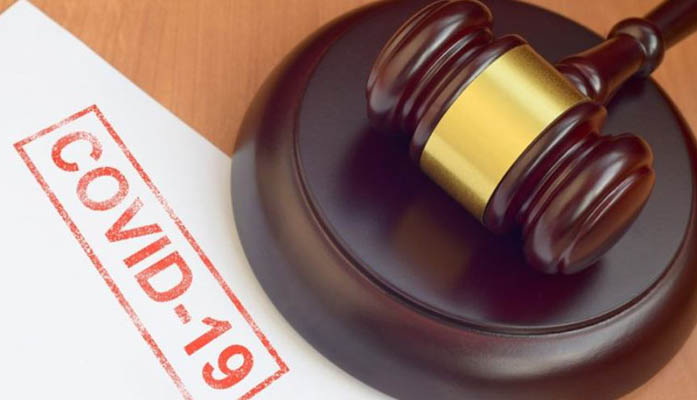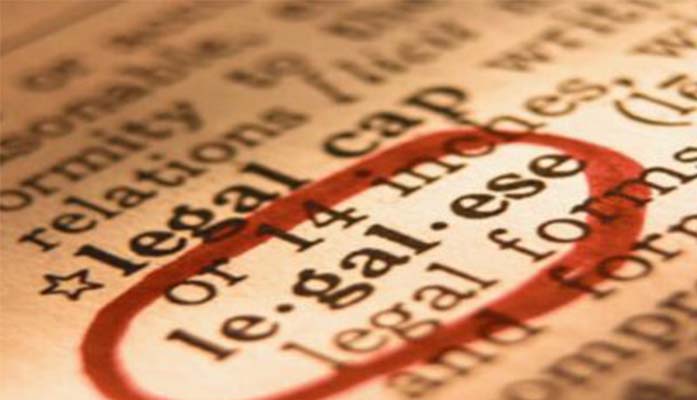
Governor Signs Legislation To Prevent Frivolous Lawsuits Related To Pandemic
By B. Hamilton |
PHOENIX — Arizona businesses can breathe a sigh of relief now that Governor Doug Ducey has signed legislation providing COVID liability protections to Arizona businesses and healthcare workers. The bill, sponsored by Sen. Vince Leach, “establishes a presumption that a person or provider acted in good faith if they adopted and implemented reasonable policies related to the public health pandemic.”
Leach says the bill was needed to protect businesses and healthcare providers from “frivolous lawsuits.”
Leach said that people are the frontlines of the pandemic “will be targets of meritless lawsuits,” without protection.
“With this bill coming along this summer,” said Leach, “the plaintiff will have the burden to prove by clear and convincing evidence that a person or provider failed to act, or acted with willful misconduct and a gross negligence in order to win a civil lawsuit.”
Leach says the bill provides “common sense protections for the frontline workers in healthcare, schools, and businesses, who have been invaluable during the pandemic response in Arizona.”
Nationwide, according to Leach, more than 2000 coronavirus related cases of them brought forward despite businesses following approved guidelines.
The legislation applies during the current public health pandemic and protects health care institutions and other service providers for any act or omission that is alleged to have occurred during a person’s screening, assessment or treatment that is related to the health emergency. Providers include educational institutions, school districts or charter schools, property owners, lessees and lessors, nonprofit organizations, religious institutions, the State and local governments, health care providers and institutions, and nursing and residential care facilities.
The legislation also provides a presumption for health professionals or health care institutions that they have acted in good faith if they relied on and reasonably attempted to comply with applicable published guidance, while also ensuring that such a presumption can be overcome if there is evidence of gross negligence or willful misconduct.
“Small businesses need certainty under the law that if they act in good faith, they’ll be protected from frivolous lawsuits,” said Leach. “I’m grateful to the organizations and fellow legislators who supported Senate Bill 1377, and to Governor Ducey for signing this important legislation.”
SB1377 Provisions
Public Health Pandemic Civil Liability
1. Precludes from liability for damages, during a public health pandemic state of emergency declared by the Governor, a person or provider who acts in good faith to protect a customer, student, tenant, volunteer, patient, guest or neighbor, or the public (litigant), from injury from the public health pandemic for injury, death or loss to person or property that is based on a claim that the person or provider failed to protect the litigant from the effects of the public health pandemic, unless it is proven by clear and convincing evidence that the person or provider failed to act or acted and the failure to act or action was due to that person’s or provider’s willful misconduct or gross negligence.
2. Establishes a presumption that a person or provider acted in good faith if the person or provider adopted and implemented reasonable policies related to the public health pandemic.
3. Applies the standard for liability to all claims that are filed before or after the general effective date for an act or omission by a person or provider that occurred after March 11, 2020, and that relates to a public health pandemic that is the subject of the state of emergency declared by the Governor.
4. Exempts claims for workers compensation from the outlined liability standard.
5. Defines provider as:
a) a person who furnishes consumer or business goods or services or entertainment;
b) an educational institution or district;
c) a school district or charter school;
d) a property owner, property manager or property lessor or lessee;
e) a nonprofit organization;
f) a religious institution;
g) the state or a state agency or instrumentality;
h) a local government or political subdivision, including a department, agency or commission of a local government or political subdivision;
i) a service provider;
j) a health professional; or
k) a health care institution.Health Professionals and Health Care Institutions
6. Precludes from liability for damages, during a public health pandemic state of emergency declared by the Governor, a health professional (professional) or health care institution (institution) that acts in good faith in any civil action for an injury or death that is alleged to be the professional’s or institution’s action or omission while providing health care services in support of the state’s response to the state of emergency, unless it is proven by clear and convincing evidence that the professional or institution failed to act or acted and the failure to act or action was due to that professional’s or institution’s willful misconduct or gross negligence.
7. Applies the outlined limited liability to any action or omission that occurs:
a) during a person’s screening, assessment, diagnosis or treatment and that is related to the public health pandemic that is the subject of the state of emergency; or
b) in the course of providing a person with health care services and that is unrelated to the public health pandemic that is the subject of the state of emergency if the professional’s or institution’s action or omission was in good faith support of the state’s response to the state of emergency, including:
i. delaying or canceling a procedure that the professional determined in good faith was a nonurgent or elective dental, medical or surgical procedure;
ii. providing nursing care or procedures;
iii. altering a person’s diagnosis or treatment in response to an order, directive or guideline that is issued by the federal government, the state or a local government; or
iv. an act or omission undertaken by a professional or institution because of a lack of staffing, facilities, equipment, supplies or other resources that are attributable to the state of emergency and that render the professional or institution unable to provide the level or manner of care to a person that otherwise would have been required in the absence of the state of emergency.8. Establishes a presumption that a professional or institution acted in good faith if the professional or institution relied on and reasonably attempted to comply with applicable published guidance relating to the public health pandemic that was issued by a federal or state agency.
9. Allows a party to introduce any other evidence that proves the professional or institution acted in good faith.
10. Applies the standard for liability to all claims that are filed before or after the general effective date for an act or omission by a person or provider that occurred after March 11, 2020, and that relates to a public health pandemic that is the subject of the state of emergency declared by the Governor.
11. Exempts claims for workers compensation from the outlined liability standard.
12. Specifies, for claims against a nursing care institution or residential care institution, where the care in question did not directly relate to the public health pandemic, the nursing care institution or residential care institution has the burden to prove the act or omission was the direct result of having to provide care to patients needing treatment for the pandemic or due to limitations caused by the pandemic.

